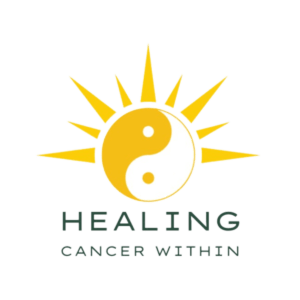Holistic healing involves addressing the well-being of the whole person, considering physical, mental, emotional, and spiritual aspects. When facing cancer, incorporating a holistic approach can complement conventional medical treatments and contribute to overall well-being. Here are the pillars of holistic healing, focusing on balancing the body, mind, and spirit:
- Physical Well-being:
- Nutrition: Adopt a balanced and nutritious diet that supports overall health and addresses specific nutritional needs during cancer treatment.
- Exercise: Engage in regular physical activity as allowed by your healthcare team. Exercise can improve energy levels, reduce stress, and enhance overall well-being.
- Rest and Sleep: Prioritize adequate and quality sleep to support the body’s natural healing processes. Allow time for rest and recovery during treatment.
- Mental and Emotional Well-being:
- Mindfulness and Meditation: Practice mindfulness and meditation techniques to bring awareness to the present moment and manage stress.
- Therapeutic Practices: Consider therapeutic practices such as counseling, psychotherapy, or support groups to address emotional challenges and provide a safe space for expression.
- Journaling: Write about your thoughts and feelings in a journal to process emotions and gain clarity on your experiences.
- Spiritual Well-being:
- Mind-Body Connection: Explore practices that emphasize the mind-body connection, such as yoga, tai chi, or qigong, to promote spiritual and physical harmony.
- Spiritual Practices: Engage in spiritual activities that align with your beliefs, such as prayer, meditation, or attending religious services.
- Finding Meaning: Reflect on the deeper meaning and purpose in your life. This may involve exploring existential questions and finding sources of inspiration and hope.
- Social and Community Connection:
- Support Networks: Build and maintain strong social connections with friends, family, and support groups. Surround yourself with individuals who provide encouragement and understanding.
- Communication: Foster open communication with loved ones and healthcare professionals. Share your concerns, needs, and experiences to strengthen your support network.
- Holistic Therapies and Complementary Approaches:
- Complementary Practices: Explore complementary therapies such as acupuncture, massage, or herbal supplements with guidance from your healthcare team.
- Energy Healing: Some individuals find benefit in practices like Reiki or energy healing to promote balance and relaxation.
- Educational Empowerment:
- Knowledge: Learn about your specific type of cancer, treatment options, and self-care practices. Knowledge empowers individuals to actively participate in their care and make informed decisions.
- Joy and Creativity:
- Hobbies and Creative Expression: Engage in activities that bring joy and fulfillment, whether it’s a hobby, creative expression, or spending time in nature.
- Balancing Work and Leisure:
- Work-Life Balance: Strive for a balance between work and leisure. Allow yourself time for relaxation, enjoyment, and activities that bring you happiness.
Remember that holistic healing is a personal journey, and the approach may vary from person to person. It’s essential to work collaboratively with healthcare professionals to integrate holistic practices into an individualized care plan. Open communication, a positive mindset, and a commitment to overall well-being can contribute to a more comprehensive and balanced approach to healing during and after cancer treatment.


